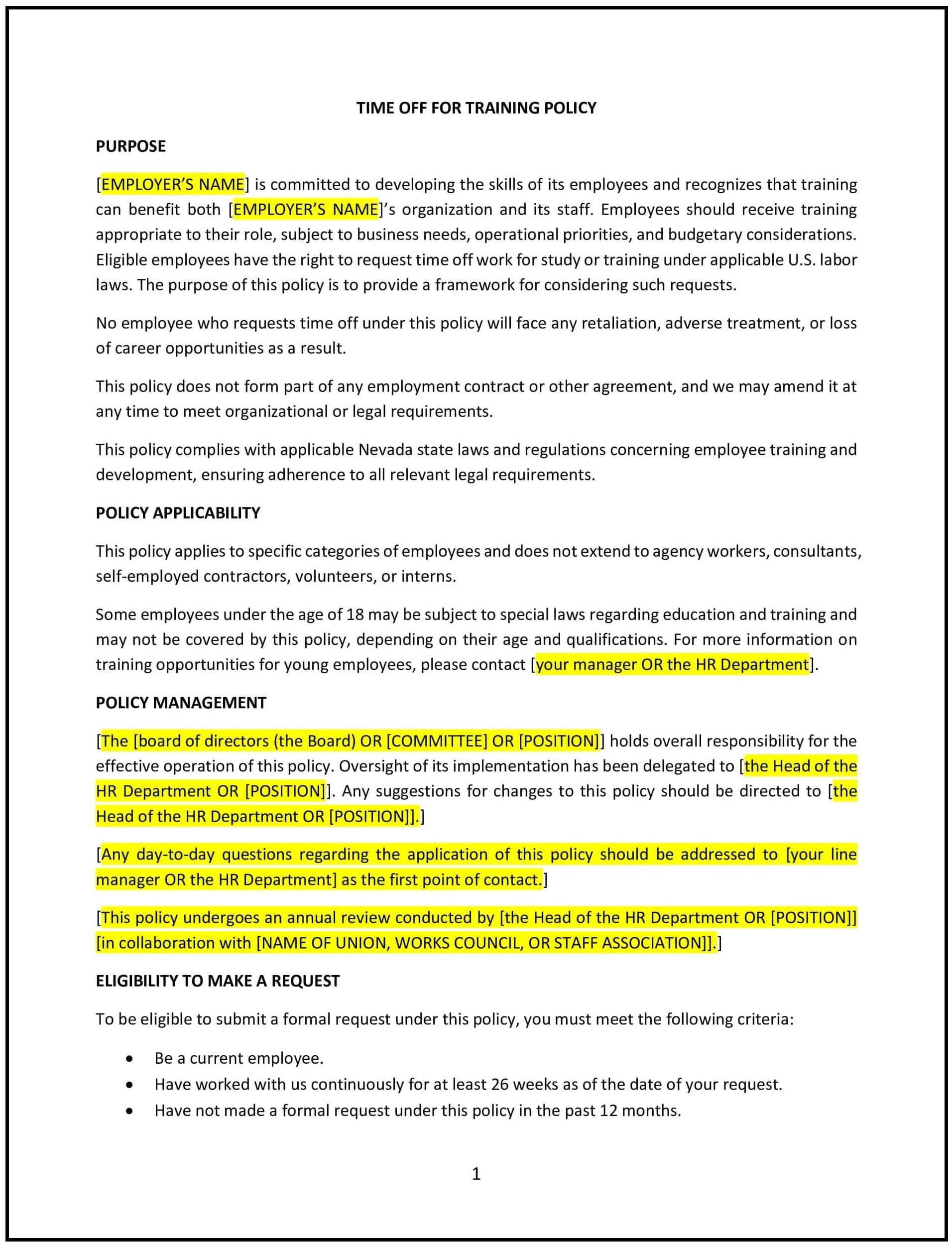Time off for training policy (Nevada): Free template
Got contracts to review? While you're here for policies, let Cobrief make contract review effortless—start your free review now.

Customize this template for free
Time off for training policy (Nevada)
This time off for training policy is designed to help Nevada businesses provide employees with clear guidelines for requesting and taking time off to attend training programs, courses, or certifications. It supports professional development while balancing the operational needs of the business.
By adopting this policy, businesses can encourage skill development, enhance employee performance, and maintain workplace productivity.
How to use this time off for training policy (Nevada)
- Define eligible training: Specify the types of training eligible for time off, such as industry certifications, professional development courses, or mandatory compliance training.
- Establish eligibility criteria: Outline which employees are eligible for training-related time off, such as full-time employees or those with a certain tenure.
- Address leave duration: Specify the maximum amount of time employees can take for training, whether paid or unpaid.
- Include approval processes: Require employees to submit a formal request, including details of the training program, its duration, and relevance to their role.
- Clarify costs and reimbursements: Detail whether the company will cover training fees, travel expenses, or other associated costs.
- Ensure alignment with business goals: Emphasize that training must align with the company’s operational needs and employee development plans.
- Provide documentation requirements: Ask employees to provide proof of completion or participation, such as a certificate or transcript.
- Outline rescheduling options: Include procedures for rescheduling training if it conflicts with critical business operations.
Benefits of using this time off for training policy (Nevada)
This policy provides several benefits for Nevada businesses:
- Enhances employee skills: Encourages professional growth and development to improve performance and innovation.
- Promotes retention: Demonstrates a commitment to employee development, increasing job satisfaction and loyalty.
- Improves productivity: Ensures employees gain the skills and knowledge needed to contribute effectively to the business.
- Ensures consistency: Provides clear guidelines for managing training-related time off requests.
- Aligns with business goals: Supports training that benefits both the employee and the company’s objectives.
Tips for using this time off for training policy (Nevada)
- Communicate the policy: Share the policy with employees during onboarding and through ongoing communication to promote awareness.
- Align with development plans: Work with employees to identify training opportunities that align with their career goals and the company’s needs.
- Monitor participation: Track employee attendance and completion of training programs to evaluate the impact on performance.
- Provide support: Offer guidance on selecting relevant training programs and navigating the request process.
- Update as needed: Review and revise the policy periodically to reflect changes in workplace dynamics or industry requirements.